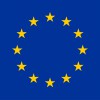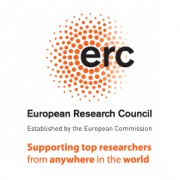About
The Idea of Sharing Knowledge
Open Science and Open Access are hotly debated today in the academic world. Most scholars are in favour of sharing their knowledge freely, even if there is no guarantee that they will get something in return. Apparently they assume that there is some greater good involved in sharing knowledge. Where does this ideal of knowledge come from?
The Republic of Letters
The project ‘Sharing Knowledge in Learned and Literary Networks – The Republic of Letters as a Pan-European Knowledge Society’ (SKILLNET) starts from the idea that the ideal of sharing knowledge is a legacy of a bottom-up social network of scholars and scientists. These scholars transcended religious, political and linguistic boundaries through their correspondence with one another. From about 1500 to around 1800, the ‘citizens’ of this European knowledge-based civil society referred to their own community as the ‘Republic of Letters’.
The people who constituted this ‘Republic’ have left behind hundreds of thousands of letters. Through these we can analyse how the Republic of Letters functioned as a ‘knowledge commons’: a social network devoted to the production and management of knowledge as a common property resource that grows as more people start using it. The ideal of sharing knowledge proved so powerful that even after the demise of the Republic of Letters around 1800, this ‘Republic’ continued to be a historical model of tolerance and exchange for the global intellectual and academic community. Sharing knowledge is part of the moral DNA of the modern scientific community.
Digital Analysis of Social Networks and Texts over a Long Period of Time
Thanks to an unprecedented body of digital data about the letters, SKILLNET electronically unravels the social structure (size, density, aggregation-level) of the huge networks of the Republic of Letters. This analysis will allow to study the lines of communication over a long period of time. The SKILLNET team will also digitally mine large bodies of texts to trace changes in the way the citizens of the Republic of Letters related to the ideal of sharing knowledge and to the methods they used to communicate this ideal to future generations.
Although the Republic of Letters in practice witnessed constant internal controversies, we hope to show that the pre-modern era saw the first attempt to overcome such troubles and create an internationalist cultural identity – an identity underscored not by capitalizing on knowledge but by sharing it.
Strategic Theme and Focus Area
SKILLNET operates under Utrecht University’s strategic theme Institutions for Open Societies and contributes to the research focus area Cultures, Citizenship and Human Rights.

Funded by the ERC
This project has received funding from the European Research Council (ERC) under the European Union’s Horizon 2020 research and innovation programme (grant agreement No 724972).




